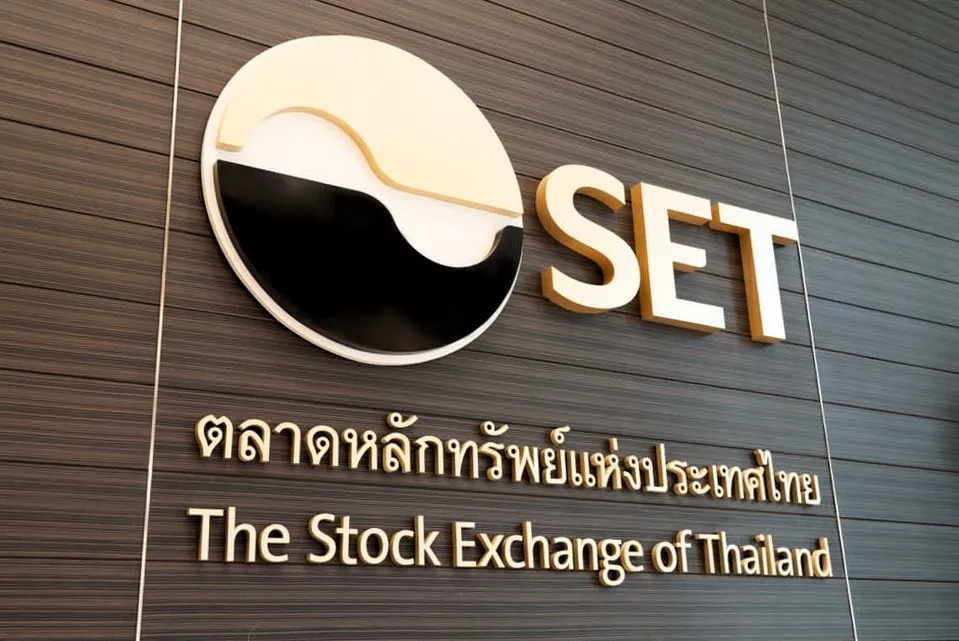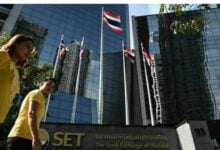SET unveils sustainable growth strategies amid global challenges

The Stock Exchange of Thailand (SET) has unveiled three core strategies to foster sustainable growth within the Thai capital market amid challenging global financial conditions and political uncertainties. This initiative aims to enhance inclusivity within the market.
SET chairman Kitipong Urapeepatanapong, addressing the Thailand Focus 2024: Adapting to a Changing World seminar, highlighted the strategic pillars: bolstering reliability and trust, enhancing market capabilities, and promoting sustainability.
A significant collaboration has been formed with FTSE Russell, part of the London Stock Exchange Group, to evaluate the environmental, social, and governance (ESG) standards of Thai-listed companies. This partnership will also support the development of new ESG-focused products and assist family businesses, which represent 67% of the listed companies in Thailand.
Year to date, retail investors have been net buyers on the SET, accumulating 122.4 billion baht (US$3.6 billion). Local institutional investors followed suit, while foreign investors were net sellers, offloading 124.6 billion baht (US$3.66 billion), with brokers also selling 2.61 billion baht (US$76.7 million), said SET President Pakorn Peetathawatchai.
“Foreign investors remain interested in and closely follow Thailand’s changes, the progress of existing policies, and future economic development plans, which will significantly impact investment and growth in Thailand and its capital market.”
Lyndon Chao, managing director of the Asia Securities Industry and Financial Markets Association (ASIFMA), remarked on the Thai capital market’s resilience despite the severe impacts of the Covid-19 pandemic and subsequent supply chain disruptions.
Thai market
The Thai market has faced decreased liquidity, a tight credit environment, a sharp decline in stock prices, and changes in government. These factors have led to reduced disposable income and diminished investor confidence in corporate governance, said Chao.
“For investors, government instability should not lead to policy instability.”
Despite these challenges, Thailand’s capital market holds a 37% share within the ASEAN region and has the potential for growth towards the end of the year, added Chao.
“Thailand should learn from case studies in other countries. For example, the Japan Exchange Group recommends companies improve their governance to enhance trust between companies and investors.
“In addition, a suitable pension reform program would attract more people to invest because there would be many investment options and it would include tax incentives.”
Pornanong Budsaratragoon, Secretary-General of the Securities and Exchange Commission (SEC), emphasised efforts by the SEC and SET to boost confidence in the Thai capital market through strict law enforcement and upgraded stock trading supervision measures, including short selling and naked short selling regulations. From September 2, dynamic price band measures will be implemented to mitigate stock price volatility and better protect investors.
“It can be seen that retail investors now have greater confidence in the Thai market and are buying more Thai stocks after the new measures came into effect, while the political situation is starting to improve.”
“As for foreign investors, they have many factors to consider when deciding whether to invest in Thailand because they have many other [alternative] destinations. However, it can be observed that they have started to sell fewer Thai stocks.”
The Thailand Focus 2024: Adapting to a Changing World seminar gathers government officials, business leaders, and executives from financial and capital markets to share insights and build confidence.
The event, which concludes tomorrow, connects investment opportunities with 178 institutional investors from 80 global institutions, underscoring the Thai capital market’s ongoing appeal to foreign investors, reported Bangkok Post.
Latest Thailand News
Follow The Thaiger on Google News:


























